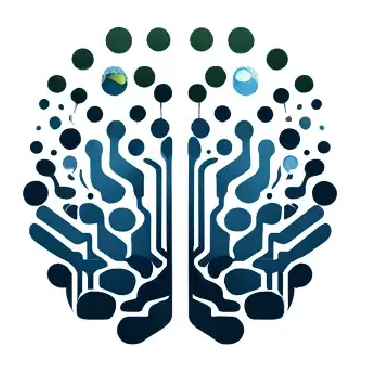Call for Papers – Workshop “Edge AI meets swarm intelligence”
18 September 2024, Dubrovnik, Croatia
On this page:
Workshop overview
Topics of interest
Submission guidelines
Important dates
Venue
Agenda
Committees
 As part of the SmartEdge & AIoTwin Summer School, the “Edge AI meets Swarm Intelligence” technical workshop is held on 18 September 2024.
As part of the SmartEdge & AIoTwin Summer School, the “Edge AI meets Swarm Intelligence” technical workshop is held on 18 September 2024.
The call for papers opened on May, 1st and the submission deadline is 29 June 2024. See also more important dates.
Among various initiatives and projects linked to The European Cloud, Edge & IoT Continuum and EU-US alliance on swarming computing and distributed intelligence, two Horizon Europe projects – SmartEdge and AIoTwin – are jointly organizing the ‘Edge AI meets Swarm Intelligence’ workshop to disseminate on-going research outcomes not only of these two projects, but also of related projects such as SMARTY, Clever and MLSysOps.
Workshop overview
Edge AI represents a novel computing paradigm designed to facilitate local data storage and processing, with AI algorithms enabling data treatment directly at the edge of the network. This approach aims to bring intelligence to the end-devices, facilitating real-time decision-making and empowering devices to operate autonomously, reducing reliance on external cloud services.
One of the key topics of interest is to develop low-code programming tool chains or platforms for edge intelligence to enable swarm computing paradigms. The tools will reduce the efforts of building smart systems requiring a collective of heterogeneous devices, sensors, vehicles and robots to collaborate towards a common goal. Such a solution aims at enabling Swarm Intelligence concepts, which are a form of AI that mimics the collective behavior of decentralized, self-organized systems, like those observed in nature.
Researchers working on the two projects share similar research interests in terms of enabling AI at the edge and dealing with the heterogeneity of such environments. Heterogeneity can refer here to differences in network capabilities, processing power, software stacks, APIs, and security protocols across the Cloud-Edge Continuum infrastructure, e.g. continuum reference architecture proposed by EUCloudEdgeIoT.
The primary goal of this workshop is to foster collaboration and the exchange of ideas among researchers and stakeholders. The workshop can provide a platform for participants to share their experiences, best practices, case studies, and to identify emerging research areas and potential solutions to existing challenges.
Topics of interest
We welcome submissions of original research, work-in-progress, and proof of concepts describing original ideas and presenting new directions in edge and swarm AI. We invite submissions related to the design, development, and evaluation of architectures, technologies, and applications for “Edge AI” and “Swarm Intelligence”, including but not limited to:
- Network optimization and interoperable protocols for Edge AI and Swarm Intelligence
- Novel system architectures and hardware designs in Edge AI and Swarm Intelligence
- Network security, data privacy, confidence, and trust in Edge AI and Swarm Intelligence
- AI-enabled resource allocation, federated learning, and swarm intelligence
- Next generation smart use-cases enabled by Edge AI and Swarm Intelligence
- Intelligence in distributed computing continuum systems
- Novel results in embedded AI, in-network computing or heterogeneous computing
- Methods, resources, and experimental findings in autonomous systems
Submission guidelines
Submissions must be original, unpublished work, and not under consideration at another conference or journal.
- Paper format: abstract, short, long paper
- Length of paper (1-2 page for abstract), 4-6 page for short, 8-10 pages long excluding references.
- Paper submission platform (Easy chair)
Submissions should be formatted following the 1-column CEUR-WS style. Word (.docx), Open Office (.odt) and Latex templates can be found here. An Overleaf template is also available.
The workshop proceedings shall be submitted to CEUR-WS.org for online publication.
Easychair link for the submission: https://easychair.org/my/conference?conf=eamsi24
Important dates
- Open for Submission: 1st , May
- Abstract Submission: 29th, June
- Full Submission: 6th, July
- Notifications: 15th, August
- Camera-ready: 23rd, August
Venue
University of Zagreb Centre for Advanced Academic Studies (CAAS)
Don Frana Bulica 4,
20000 Dubrovnik, Croatia
Agenda (tentative)
| Time | Topic |
|---|---|
| 08:15-08:45 | Morning coffee |
| 08:45-09:00 | Opening ceremony |
| 09:00-10:15 | “Techniques for safe and highly available cloud applications” Keynote by Carla Ferreira (TarDIS) |
| 10:15-10:30 | Coffee break + posters session |
| 10:30-12:00 | Papers track |
| 12:00-13:00 | Lunch break + posters session |
| 13:00-14:30 | Free slot/activity |
| 14:30-14:45 | Coffee break + poster sessions |
| 14:45-16:00 | Papers track |
| 16:00-16:15 | Coffee break + poster sessions |
| 16:15-17:30 | Papers track |
| 17:30-17:45 | Closing the workshop |
Committees
Workshop chairs
- Ivana Podnar Zarko (University of Zagreb, Croatia)
- Philippe Cudre-Mauroux (University of Fribourg, Switzerland)
- Trung-Kien Tran (Bosch, Germany)
- Danh Le-Phuoc (TU Berlin, Germany)
Publicity and proceeding chairs
- Ilir Murturi (TU Wien, Austria)
- Anh Le-Tuan (TU Berlin, Germany)
Technical program committee
- Alessio Carenini (CEFRIEL, Italy)
- Mario Scrocca (CEFRIEL, Italy)
- Kari Koskinen (CONVEQS, Finland)
- Mehrdad (CONVEQS, Finland)
- Alan Cueva Mora (DELL, Ireland)
- Christopher Krauß (FHG, Germany)
- Louay Bassbouss (FHG, Germany)
- Philippe Cudre-Mauroux (FRIB, Switzerland)
- Jean-Paul Calbimonte (HESSO – Switzerland)
- Davide Calvaresi (HESSO, Switzerland)
- JJ Vegas Olmos (NVIDIA, Denmark)
- Peng Qian (Oxford University, UK)
- Changgang Zheng (Oxford University, UK)
- Lodovico Giaretta (RISE, Sweden)
- Sarunas Girdzijauskas (RISE, Sweden)
- Kirill Dorofeev (Siemens, Germany)
- Damien Foucard (TU Berlin, Germany)
- Mario Kušek (University of Zagreb, Croatia)
- Gordan Ježić (University of Zagreb, Croatia)
- Marie-Claire Forgue (W3C/ERCIM)
- Michalis Mountantonakis (W3C/ERCIM)
- Panagiotis Papadakos (W3C/ERCIM)
- Filippo Cugini (CNIT, Italy)
- Michelangelo Guaitolini (CNIT, Italy)
